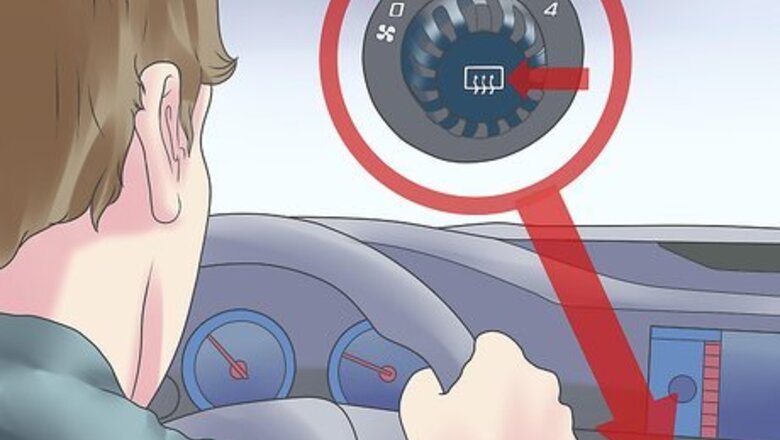
views
Removing Ice
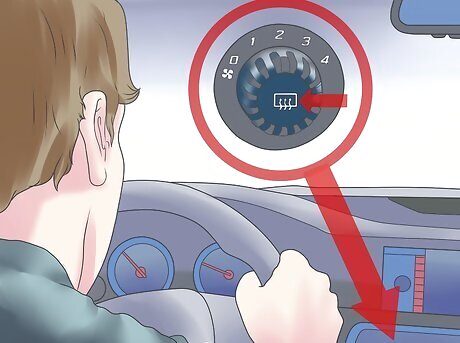
Start your car and let it idle warm the car up. If your car has a "defrost" setting on the temperature gauge, put it on. Wait at least fifteen minutes for the glass to warm up. Never attempt to try to defrost the windshield using water, hot, cold, or warm. Using warm or hot water can cause the glass to break due to thermal shock due to temperature change. In very cold climates, cold water can also freeze on the windshield, making your troubles even worse. While your car is warming up, make sure no ice, snow, or other materials are blocking the vehicle tailpipe. Remove any blockage to prevent the possibility of carbon monoxide poisoning. If you drive in a very snowy area, wait until the ice has noticeably begun to melt before proceeding to the next step. It may take thicker ice well over fifteen minutes to sufficiently begin melting.
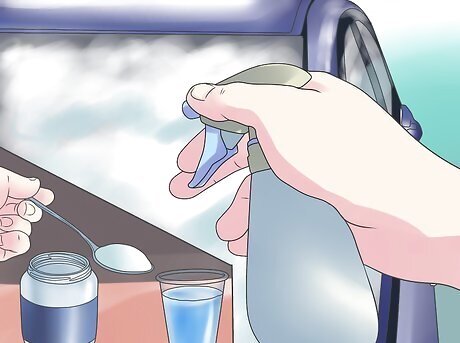
Spray your car with a saltwater solution. This will dissolve the ice via chemical reaction rather than melting it with heat. The ions in salt also lower the freezing point of water, making it difficult for water to refreeze. Apply the saltwater sparingly to your windshield since heavy salt exposure may cause damage to the glass. While normal table salt will suffice in above freezing temperatures, you may want to consider using road salt, which is commonly shoveled onto pavements to quickly melt ice and reduce the risk of someone slipping and falling. Road salt has a different chemical composition that makes it more effective at freezing temperatures.
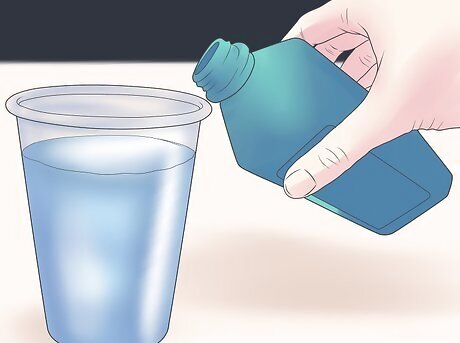
Apply an alcohol and water solution to melt the ice. Make a 2:1 rubbing alcohol to water solution and fill a spray bottle with it. Spray the solution onto all desired windows. You can also add a few drops of dish soap to the solution. Adding chemicals is similar to adding salt and lowers the freezing point of water. This will melt the ice more quickly than warm water. Unlike the saltwater solution, the alcohol solution can be sprayed liberally without risking damage to your car.
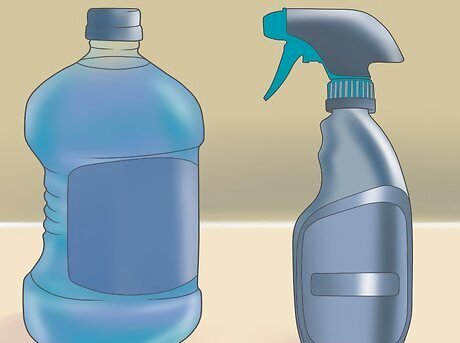
Buy a commercial de-icer if the homemade solutions fail. Most commercial formulas work well but tend to be costly. Like scrapers, these formulas shouldn't be hard to find at your local car supply store. Almost every auto store has a section dedicated to de-icers. Examples of popular de-icing agents include: "Valvoline Deicer" and "Prestone Spray-on Windshield De-icer."
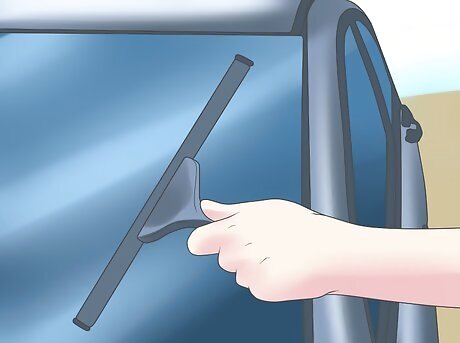
Use a squeegee, soft-bristled brush, or your windshield wipers to scrub away the residue. Once you have applied your chosen solution, wipe away the liquid and ice from your windshield and car. After a minute or two, your saltwater or alcohol solution should begin to melt the ice. Keep in mind, however, that the ice will only be partially melted. It will need to be brushed away in order to improve visibility.
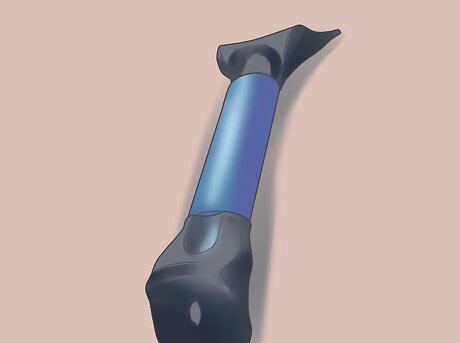
Keep an ice scraper in the car all winter to chip ice off your windshield. You should purchase one for your car well in advance, then leave it in the boot or glovebox to handle ice if you have no other supplies around. Push it into the windshield and use short, powerful strokes to chip the ice away. Ice scrapers are specialized tools for scraping ice from your windshield. Typically, they are plastic and have a large, flat, dull blade on one end, and a handle on the other, sometimes combined with a brush. They can be purchased up at most auto stores and car supply stores. In cold climates, these will also be available in most large retail stores, hardware stores, gas stations, even grocery stores. In a pinch you can use a standard squeegee to scrape ice, although this is not as effective. Scraper heads are made from plastic rather than rubber, and this makes them more sturdy when scrubbing away residue.
Taking Proactive Measures
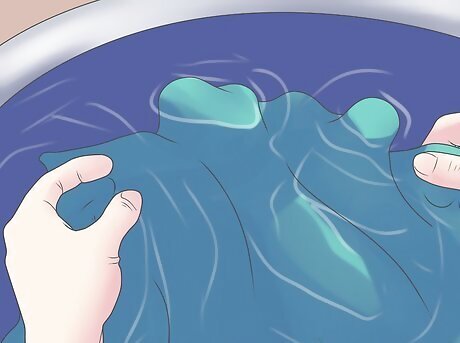
Cover your windshield with a tarp, towel, or sheet, and weigh it down to prevent ice from building up. Only use this method in areas with light snowfall, as it can be a heavy blanket to remove when weighed down with snow. Soak the towel in a saltwater solution and lay it on your windshield overnight for even better protection. Dissolve a tablespoon of salt in one quart of water and immerse the towel in the solution. While it is still damp, position the towel onto your windshield and place your wipers over it to hold it securely. Your towel can be reused multiple times. Simply store it in a plastic bag after each use and add a small amount of water to keep it damp.
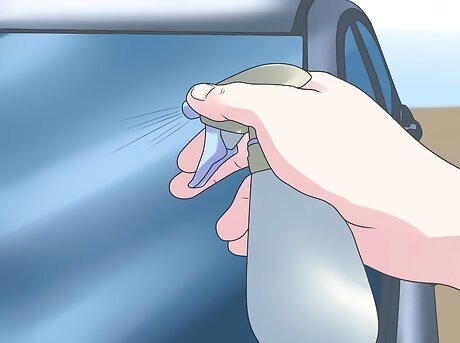
Spray either homemade or commercial ice-prevention spray on your windshield at night. You can buy professional products or mix three cups of vinegar with one cup of water for your own spray. Spray a light coat of a vinegar/water solution on your defrosted windows before bed to prevent ice the next morning. Be very careful not to apply heavy coatings of vinegar to your car, because it may eat into the windshield, creating miniature pockmarks in the glass. Applying vinegar to metal can also speed oxidation and result in rust or corrosion.
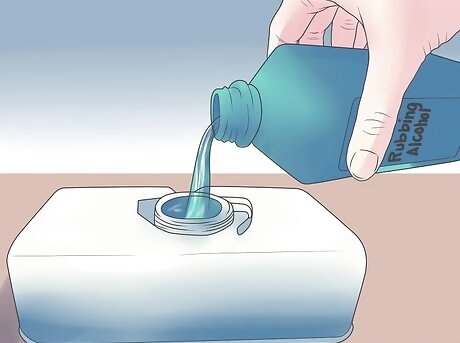
Pour some rubbing alcohol into your windshield washer reservoir. This will help the wiper lines from freezing up and not working. This trick will save you from having to go to the store to purchase proper windshield fluid. Remember, preventing and fighting ice build-up doesn't have to be a costly endeavor.
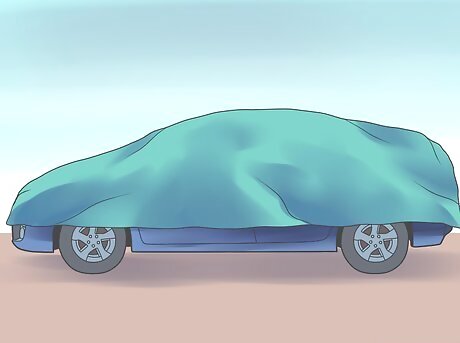
Cover your car with a tarp whenever you aren't driving. Make sure to tie it down with bungee cables or some other fastenings to prevent it from slipping or being blown off. Parking your car in the garage is best. By protecting your car from even being exposed to the elements, you significantly reduce the amount of labor required to remove ice after the fact. Though this prevents most ice build-up, you may notice some light frost on your windshield. However, this minor ice accumulation should melt shortly using your car's defrost function.



















Comments
0 comment